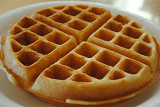If things go according to plan (mostly around weather), I'll be doing some motorcycling over the long weekend. Which reminds me about a word I learned not long ago: farkle.
In the sense I recently learned, farkle refers to accessories that you add to customize your two-wheeled ride. We riders of course like to convince ourselves that these farkles are practical additions to the bike: removable windshield, GPS units, heated seats, and so on. But as one page puts it, the usefulness of a farkle is in the eye of the beholder. A commonly held view is that farkle is a combination of function and sparkle, which kind of implies that the utility of a farkle might not be its sole purpose.
Farkle is a fun word because it's versatile. It can be a noun—either a count noun (article: 10 Affordable Farkles Under $40) or a mass noun (catalog: Motorcycle Farkle & Gadgets). It can also work as a verb: farkling your bike, a motorcycle that's been farkled up.
While I was looking into farkle, I discovered that it's also been used in the world of computers as a synonym for "break" or "mess up." As the Jargon File has it, farkled means hosed. I haven't heard this in the field (that I know of), but you can find traces in support forums and the like. For example, one user described how a particular approach to a problem "involves only changes to core code, [and] doesn't farkle with user content directories." I might try to, you know, socialize this use of the term a bit, see if I can get people interested in it again.
For origins, we turn to the kitchen (and beyond). Not long ago, the inimitable Haggard Hawks tweeted that "In 18th century slang, a WAFFLE-FROLIC was a sumptuous meal." That was great, of course, but it made we wonder where we got the word waffle from.
 The OED says it's an American term, borrowed from Dutch. (We also got cookie from Dutch.) Beyond this direct origin, waffle is related to an old Germanic word that means "honeycomb"; for example, the German word for honeycomb is Wabe. The sense of crossed-over things—the distinctive feature of a waffle—appears also in distantly related words like weave and web. Culinarily, a reasonably close relative of the waffle is wafer.
The OED says it's an American term, borrowed from Dutch. (We also got cookie from Dutch.) Beyond this direct origin, waffle is related to an old Germanic word that means "honeycomb"; for example, the German word for honeycomb is Wabe. The sense of crossed-over things—the distinctive feature of a waffle—appears also in distantly related words like weave and web. Culinarily, a reasonably close relative of the waffle is wafer.
We also have the verb to waffle, meaning to blather on, and by extension, to dither. Surprise, that word is etymologically unrelated to the breakfast waffle. Instead, to waffle comes from an old verb waff that means to yelp or bark (compare woof). The -le part of to waffle marks it as a so-called frequentative, which is a form of the verb that suggests repeated action. Other frequentative pairs like waff/waffle are drip/dribble, daze/dazzle, and spark/sparkle. Which rhymes with farkle, which is where we started, and which seems like a good place to quit for now.
Like this? Read all the Friday words.